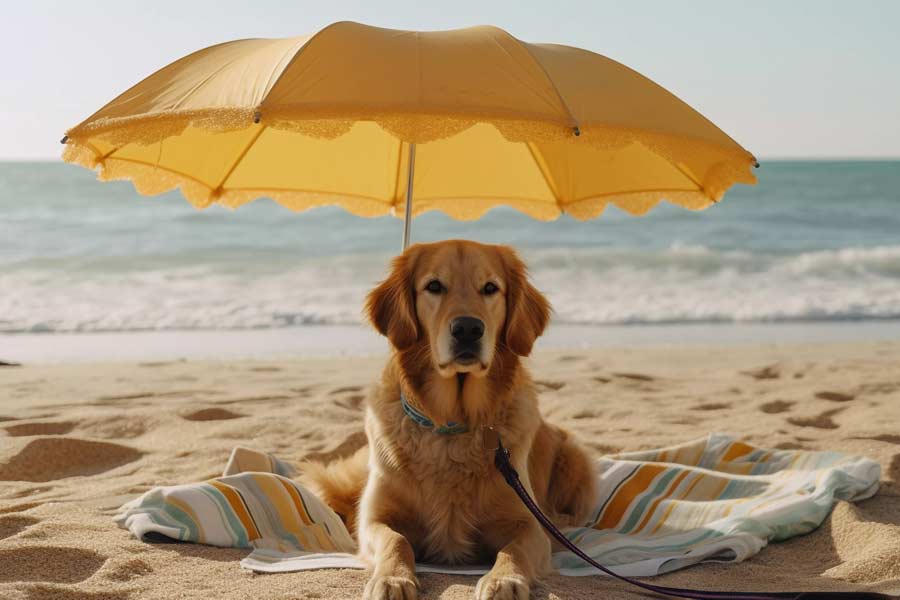As summer arrives and temperatures soar, it’s important to remember that our furry friends need extra care to stay cool and safe. Dogs are susceptible to heat-related illnesses and other dangers during hot weather, so it’s crucial for pet owners to take proactive steps to protect them.
Here are some essential summer safety tips to ensure your dog stays happy and healthy all season long:
1. Hydration is Key: Just like humans, dogs need plenty of water to stay hydrated, especially in hot weather. Always provide your dog with access to fresh, clean water, whether you’re at home or out on a walk. Carry a portable water bowl and a bottle of water with you during outings to ensure your dog can drink whenever needed.
2. Avoid Midday Heat: The sun is strongest and temperatures are highest during midday hours. Whenever possible, schedule your dog’s walks and outdoor activities during the cooler parts of the day, such as early morning or late evening. This helps prevent overheating and paw burns from hot pavement.
3. Provide Shade and Cool Spaces: If your dog spends time outdoors, make sure there are shaded areas where they can rest comfortably. Consider setting up a doggie pool or a sprinkler for them to cool off in. Indoors, ensure there are cool spots with good air circulation for your dog to relax in.
4. Never Leave Your Dog in a Hot Car: Even with the windows cracked open, a parked car can quickly become a furnace in hot weather. Never leave your dog unattended in a car, even for a few minutes. If you need to run errands, leave your dog at home where it’s safe and cool.
5. Watch for Signs of Overheating: Dogs can easily overheat, leading to heatstroke, which is a life-threatening condition. Watch for signs such as excessive panting, drooling, lethargy, and difficulty breathing. If you suspect your dog is overheating, move them to a cooler area immediately, offer water, and contact your veterinarian.
6. Protect Against Parasites: Summer is prime time for ticks, fleas, and mosquitoes, which can transmit diseases to your dog. Use veterinarian-recommended flea and tick preventatives, and consider using pet-safe mosquito repellents if needed. Regularly check your dog for ticks, especially after walks in wooded or grassy areas.
7. Be Cautious Around Bodies of Water: Not all dogs are natural swimmers, and even those who are may tire quickly or encounter dangerous currents. Always supervise your dog around pools, lakes, and rivers. Consider using a dog life jacket for added safety, especially if boating or spending time near open water.
8. Protect Your Dog’s Paws: Hot pavement can burn your dog’s paw pads, leading to pain and discomfort. Test the pavement with your hand—if it’s too hot for your hand, it’s too hot for your dog’s paws. Opt for walks on grassy or shaded paths, or use dog booties to protect their paws.
9. Maintain Proper Grooming: Regular grooming helps keep your dog comfortable in hot weather. Brushing helps remove excess fur and prevents mats, which can trap heat. However, be cautious with trimming your dog’s coat—some breeds have coats that provide natural insulation against both heat and cold.
10. Be Prepared for Emergencies: Despite taking precautions, accidents can happen. Make sure you have a pet first-aid kit at home and familiarize yourself with basic first aid procedures for dogs. Keep emergency numbers handy, including your veterinarian’s contact information and the nearest animal emergency clinic.
By following these summer safety tips, you can ensure that your canine companion enjoys the season to the fullest while staying safe and healthy. Remember, a little extra care goes a long way in keeping your dog happy and cool during the dog days of summer!







Be First to Comment